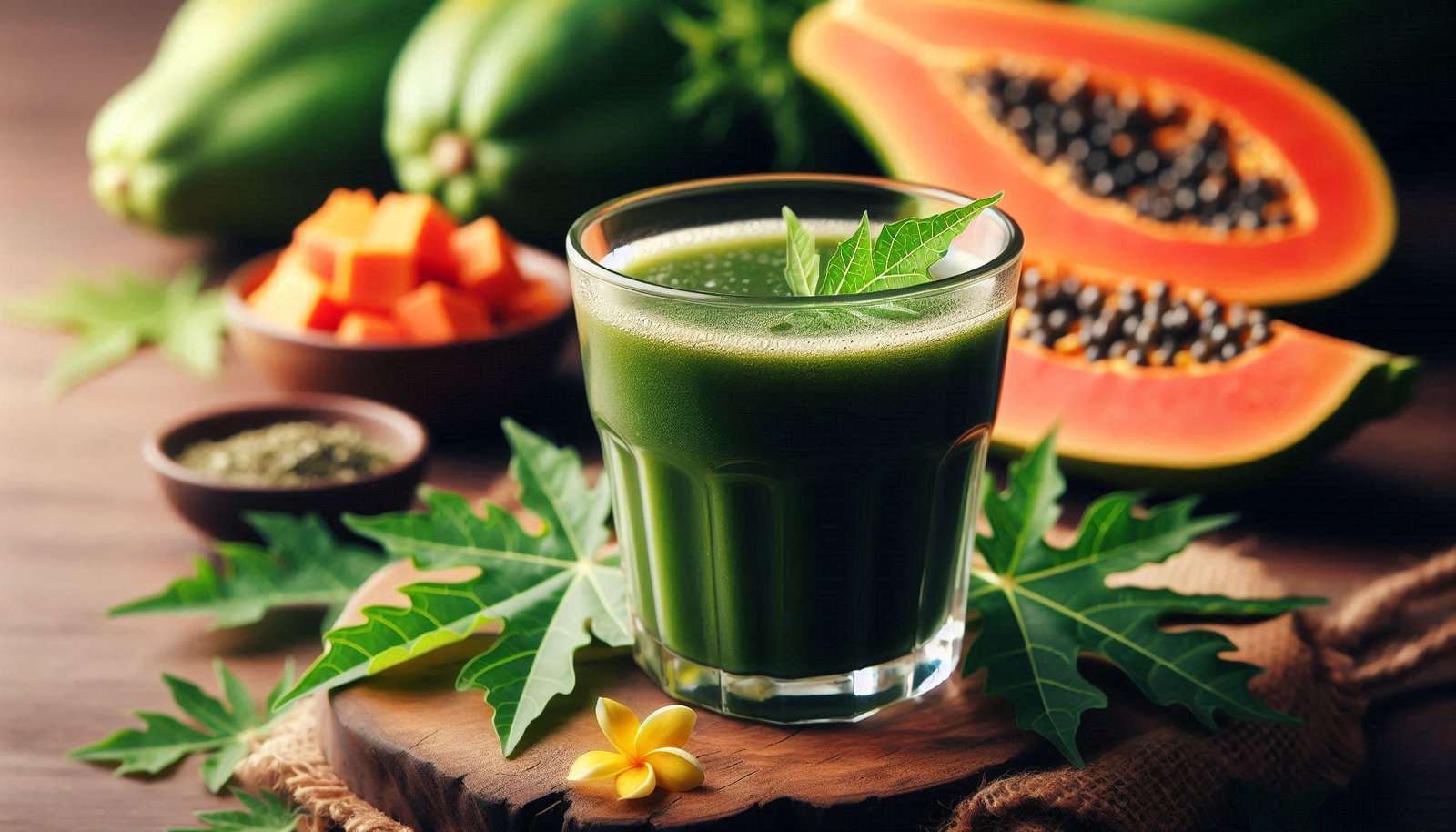
The papaya, a tropical fruit with a sweet and tangy flavour, has been enjoyed for centuries. Beyond its delicious taste, this vibrant fruit is a nutritional powerhouse packed with essential vitamins, minerals, and antioxidants. Let’s dive into the details of what makes papaya such a remarkable addition to your diet.
Understanding the Nutritional Powerhouse
The papaya, a tropical fruit with a sweet and tangy flavour, has been enjoyed for centuries. Beyond its delicious taste, this vibrant fruit is a nutritional powerhouse packed with essential vitamins, minerals, and antioxidants. Let’s dive into the details of what makes papaya such a remarkable addition to your diet.
A Tropical Treasure Trove
Native to Central America, the papaya has found its way to tropical regions worldwide. Its vibrant orange flesh is not only visually appealing but also a treasure trove of nutrients. From its skin to its seeds, every part of this fruit offers potential health benefits.

One bite of papaya delivers a burst of essential nutrients. It’s an excellent source of Vitamin C, an antioxidant known for boosting immunity and collagen production. Vitamin A, another key player in vision health and immune function, is also abundant in papaya. Additionally, this tropical delight provides a good amount of potassium, essential for heart health and blood pressure regulation.
The Role of Antioxidants in Papaya
Antioxidants are the unsung heroes in the battle against free radicals, harmful molecules that can damage cells. Papaya is rich in antioxidants, including beta-carotene and lycopene. These compounds have been linked to a reduced risk of chronic diseases such as heart disease, cancer, and age-related macular degeneration.

Papaya and Digestive Health
Papaya has long been celebrated for its positive impact on digestion. The unique combination of fiber, enzymes, and water content makes it a natural ally for a healthy gut.
Papaya: A Digestive Aid
One of the star ingredients in papaya that aids digestion is papain, a digestive enzyme. Papain helps break down proteins, making it easier for your body to absorb nutrients. This can be particularly beneficial for those with indigestion or bloating.
Is Papaya Good for Constipation?
Struggling with constipation? Papaya might be your new best friend. The fiber content in papaya adds bulk to your stool, promoting regular bowel movements. Additionally, the water content helps soften the stool, making it easier to pass. Enjoying a ripe papaya can be a natural and effective way to relieve constipation.
Papaya for Diarrhoea: Friend or Foe?
While papaya is generally beneficial for digestive health, it’s important to note that it might not be the best choice for everyone with diarrhea. The high water content could potentially worsen symptoms in some cases. If you’re experiencing diarrhea, it’s advisable to consult with a healthcare professional for personalized guidance.
Papaya and Gut Health
Beyond its role in relieving constipation, papaya contributes to overall gut health. The fiber content promotes the growth of beneficial gut bacteria, essential for optimal digestion and immune function. A healthy gut is crucial for overall well-being, and incorporating papaya into your diet can be a delicious way to support gut health.

Papaya for Overall Health
Papaya’s benefits extend far beyond digestive health. This tropical fruit offers a plethora of advantages for your overall well-being. Let’s explore how papaya can contribute to a healthier you.
Is Papaya Good for Diabetes?
The question of whether papaya is good for diabetes is a common one. The good news is, it generally can be. Papaya has a moderate glycemic index, meaning it doesn’t cause rapid spikes in blood sugar levels. Additionally, the fiber content helps regulate blood sugar levels by slowing down the absorption of glucose. However, as with any fruit, it’s essential to consume papaya in moderation and monitor your blood sugar levels.
Papaya and Heart Health
Heart disease is a leading cause of death worldwide. Fortunately, papaya can play a role in protecting your heart. The antioxidants in papaya, particularly lycopene, help reduce inflammation and lower bad cholesterol levels. Potassium, another essential nutrient found in papaya, supports healthy blood pressure. By incorporating papaya into your diet, you can contribute to a healthier heart.

Papaya for Weight Management
Are you striving to achieve a healthy weight? Papaya can be a valuable addition to your weight management plan. The abundant fibre in papaya helps you feel satisfied longer, potentially reducing overall calorie intake. Additionally, the enzymes in papaya can aid in digestion and nutrient absorption, supporting overall metabolic health. Remember, weight management is a holistic approach that includes a balanced diet, regular exercise, and adequate sleep.
Papaya and Immunity Boost
Robust immune function is crucial for defending the body against illnesses. Papaya’s high vitamin C content is well-known for its immune-boosting properties. This powerful antioxidant helps protect your body from harmful free radicals and supports the production of white blood cells, which are crucial for fighting off infections. By enjoying papaya regularly, you can give your immune system a natural boost.

Is Papaya Good for Skin?
The benefits of papaya extend beyond internal health. This tropical fruit can also work wonders for your skin. The enzymes in papaya have exfoliating properties, helping to remove dead skin cells and promote a radiant complexion. Additionally, the antioxidants in papaya protect your skin from damage caused by free radicals. Consider incorporating papaya into your skincare routine for a natural glow.
Papaya and Specific Health Concerns
Papaya has been linked to various health benefits, including addressing specific concerns. Let’s explore how this tropical fruit can potentially support your well-being.
Papaya for Liver Health
As the body’s filtration system, the liver plays a critical role in removing harmful substances from the bloodstream. Papaya’s antioxidant properties can help protect the liver from damage caused by free radicals. Additionally, the enzymes in papaya aid in digestion and may support liver function. While more research is needed, some studies suggest that papaya may have a protective effect on the liver.
Papaya and Heart Health
Heart disease is a leading cause of death worldwide. Fortunately, papaya can play a role in protecting your heart. The antioxidants in papaya, particularly lycopene, help reduce inflammation and lower bad cholesterol levels. Potassium, another essential nutrient found in papaya, supports healthy blood pressure. By incorporating papaya into your diet, you can contribute to a healthier heart.

Papaya and Pregnancy
Most health professionals agree that papaya is generally safe for pregnant women to consume. It’s a good source of essential nutrients like vitamin C and folic acid, both of which are crucial for a healthy pregnancy. However, it’s important to consume papaya in moderation and avoid unripe papaya, as it contains high levels of latex-like substances that may cause contractions.
Papaya for Uric Acid and Gout
Gout is a type of arthritis caused by a buildup of uric acid in the blood. While more research is needed, some people believe that papaya may help lower uric acid levels. The antioxidants in papaya can help reduce inflammation, a common symptom of gout. However, it’s essential to consult with a healthcare professional for proper management of gout.
Papaya for Cough and Cold
Papaya’s vitamin C content can help boost your immune system, making it a potential ally in fighting off colds and coughs. Additionally, the anti-inflammatory properties of papaya may help soothe sore throats. While papaya won’t cure a cold, it can be a supportive addition to your diet during illness.
Papaya for Menstrual Health
Some women believe that papaya can help alleviate menstrual cramps. The enzymes in papaya have anti-inflammatory properties that may help reduce discomfort. Unfortunately, there’s a lack of substantial research to definitively confirm this benefit. If you experience severe menstrual cramps, it’s essential to consult with a healthcare professional.

Beyond the Fruit: Seeds and Leaves
While the papaya fruit itself is a nutritional powerhouse, its other parts also offer potential health benefits. Let’s explore the wonders of papaya seeds and leaves.
The Powerhouse Within: Papaya Seeds
Often discarded, papaya seeds are packed with nutrients and bioactive compounds. They have a slightly bitter taste, but their potential health benefits are worth considering.
Papaya seeds are rich in antioxidants, which help combat oxidative stress and protect your cells from damage. Some studies suggest that papaya seeds may have anti-inflammatory, antimicrobial, and antiviral properties. They are also a good source of fiber, which supports digestive health.
Papaya Leaf Juice: A Health Elixir?
Papaya leaf juice has gained popularity as a potential health elixir. It’s rich in vitamins, minerals, and antioxidants. Some people believe that papaya leaf juice can boost immunity, improve liver function, and aid in blood clotting. However, scientific research on papaya leaf juice is limited, and more studies are needed to confirm its benefits.
It’s essential to consume papaya leaf juice in moderation and consult with a healthcare professional before incorporating it into your diet, especially if you have underlying health conditions or are pregnant or breastfeeding.

How to Incorporate Papaya into Your Diet
Now that you know about the numerous benefits of papaya, you might be wondering how to enjoy this tropical fruit. There are countless ways to incorporate papaya into your diet, from sweet to savoury.
Delicious Ways to Enjoy Papaya
The most straightforward way to enjoy papaya is simply by eating it fresh. Its sweet and tangy flavour makes it a refreshing snack on its own. You can also add diced papaya to fruit salads, smoothies, or yogurt for a burst of flavour and nutrients.
Papaya can also be cooked in various dishes. It can be added to salsas, chutneys, or curries for a tropical twist. You can even grill papaya slices for a unique and delicious treat.
Papaya Recipes: Sweet and Savoury
There are countless papaya recipes available online, catering to different tastes and dietary preferences. You can find recipes for papaya desserts, such as papaya sorbet, papaya crumble, or papaya cheesecake. For savoury options, consider trying papaya salad, papaya curry, or papaya chutney.
Experiment with different recipes and discover your favourite way to enjoy this versatile fruit.

Safety Considerations
While papaya offers numerous health benefits, it’s essential to consume it in moderation and be aware of potential side effects.
Potential Side Effects of Papaya
Although rare, some people may experience allergic reactions to papaya. Symptoms of a papaya allergy can include skin rash, itching, swelling, and difficulty breathing. Should you exhibit any signs of an allergic reaction, cease papaya consumption immediately and consult a healthcare provider.
Another potential side effect is carotenemia, a condition that causes the skin to turn yellow. This is harmless and usually disappears when papaya consumption is reduced.
It’s crucial to remember that unripe papaya contains latex-like substances that can cause digestive upset and, in pregnant women, may trigger uterine contractions. Always choose ripe papaya for consumption.
Allergies and Sensitivities
People with latex allergies may also be allergic to papaya, as they share similar proteins. If you have a latex allergy, it’s best to avoid papaya or consult with a healthcare professional.
Additionally, individuals with certain medical conditions, such as diabetes or blood clotting disorders, should consume papaya with caution and under the guidance of a healthcare provider.
By following these guidelines and enjoying papaya in moderation, you can safely reap its numerous health benefits.

Papaya, the tropical gem, offers a wealth of health benefits. From aiding digestion and boosting immunity to supporting heart health and skin radiance, this versatile fruit has earned its place as a nutritional powerhouse. By incorporating papaya into your diet in various forms, you can enjoy its delicious taste while reaping its numerous advantages.
Remember to choose ripe papaya and consume it in moderation. While papaya is generally safe for most people, it’s essential to be aware of potential allergies and interactions with medications. Before making significant dietary shifts, it’s prudent to seek advice from a healthcare expert to tailor a plan to your specific needs.
Embrace the sweetness and health benefits of papaya and discover the secrets this tropical fruit holds for your well-being.
Yes, papaya can be beneficial for people with diabetes. It has a moderate glycemic index, meaning it doesn’t cause rapid spikes in blood sugar. Additionally, the fiber in papaya helps regulate blood sugar levels. However, it’s important to consume papaya in moderation and monitor blood sugar levels.
Papaya may support liver health. Its antioxidant properties can help protect the liver from damage. The enzymes in papaya also aid digestion, which can indirectly benefit liver function. However, more research is needed to confirm these effects.
Papaya can be part of a weight loss plan. Its high fiber content can help you feel full, potentially reducing overall calorie intake. Additionally, the enzymes in papaya aid digestion. Remember, weight loss is about overall diet and exercise.
Generally, yes, papaya is considered safe during pregnancy. It’s a good source of essential nutrients like vitamin C and folic acid. However, it’s crucial to avoid unripe papaya due to its latex-like substances.
Yes, papaya is beneficial for constipation. The fiber content adds bulk to stool, promoting regular bowel movements. The fruit’s water content also helps soften stool.
There’s limited scientific evidence on papaya’s effect on uric acid levels. While some believe it may help due to its antioxidant properties, more research is needed.
There isn’t specific research on papaya and fatty liver. However, its antioxidant properties might offer some protective benefits for the liver overall.
There’s no definitive scientific evidence linking papaya to period relief. Some people believe it may help with menstrual cramps due to its anti-inflammatory properties, but more research is necessary.
While papaya generally aids digestion, it might not be suitable for everyone with diarrhea. The high water content could worsen symptoms in some cases. It’s best to consult a healthcare provider.
Papaya can support immune health, which may help prevent or reduce the severity of colds and coughs. Its vitamin C content is known for boosting immunity.
Yes, eating papaya daily can be beneficial due to its nutrient content. However, moderation is key. Varying your fruit intake is also important for a balanced diet.
There’s no specific benefit to eating papaya at night. You can enjoy it anytime of the day that suits you best.
No, papaya is not typically associated with weight gain. In fact, its fiber content can aid in weight management.
Yes, papaya can be beneficial for heart health. Its antioxidant properties, potassium content, and fiber contribute to heart health.
Yes, papaya is good for the stomach. The enzymes in papaya aid digestion, and the fiber promotes healthy gut function.
Yes, papaya can benefit skin health. The enzymes act as a natural exfoliant, and the antioxidants protect the skin from damage.
While papaya leaf juice is rich in nutrients, there’s limited scientific research on its specific health benefits. Some studies suggest potential benefits for liver health and immunity, but more research is needed.
Note: It’s always recommended to consult with a healthcare professional for personalized advice, especially if you have underlying health conditions.